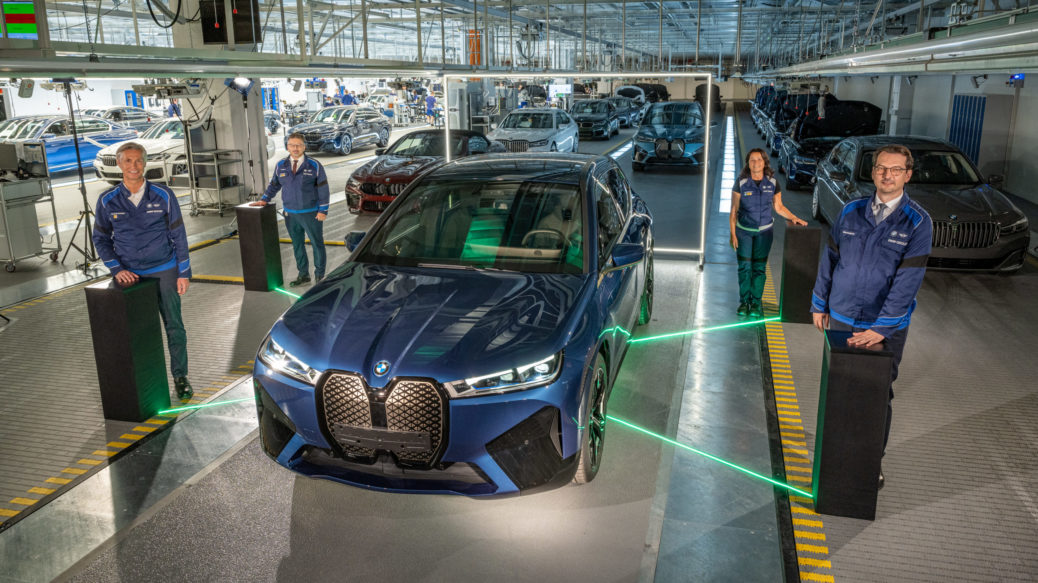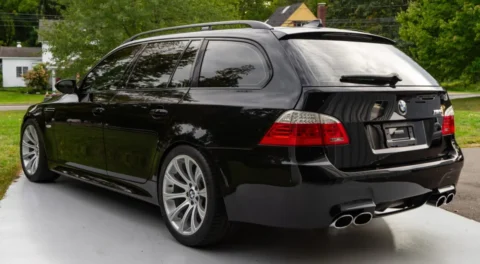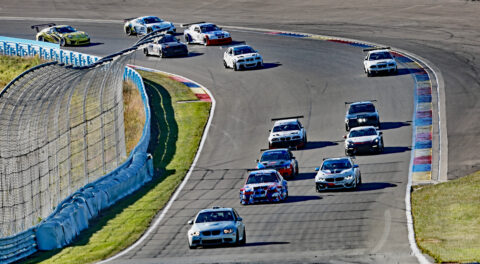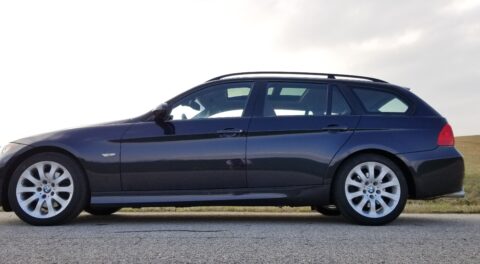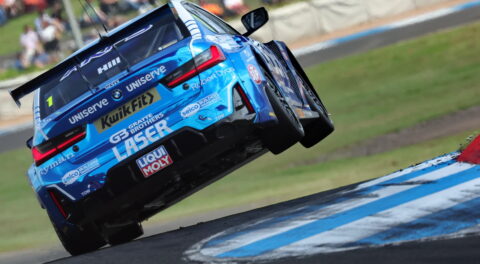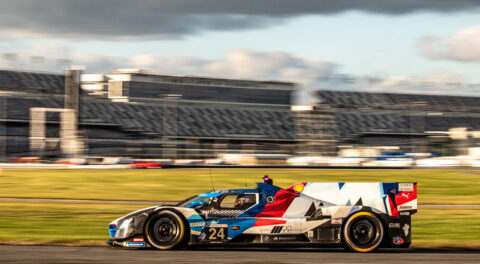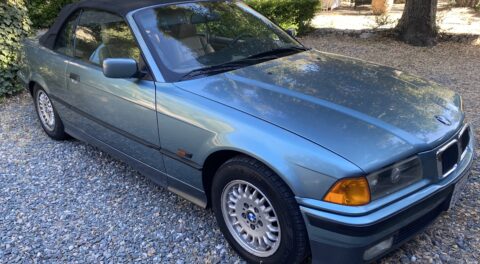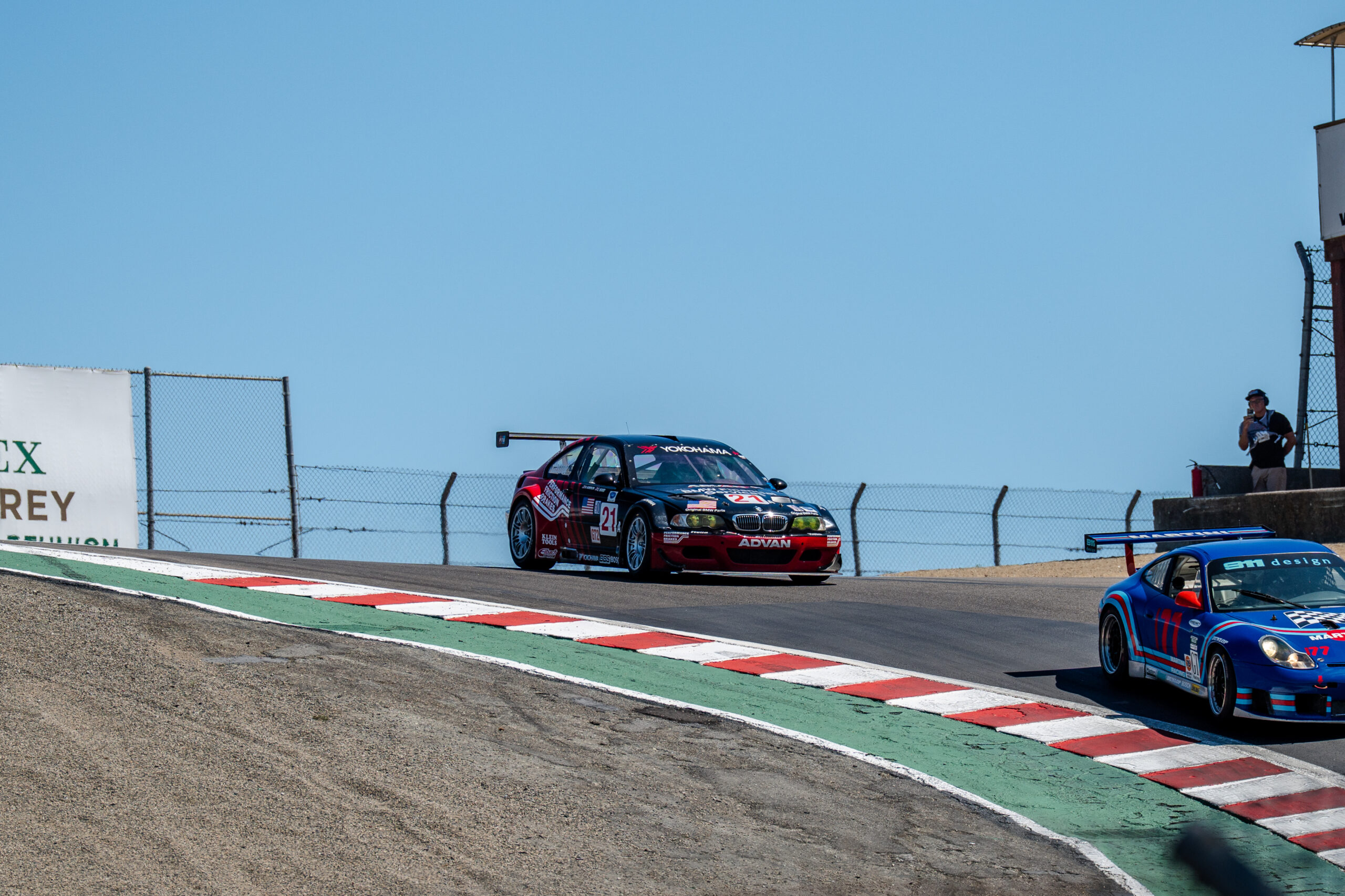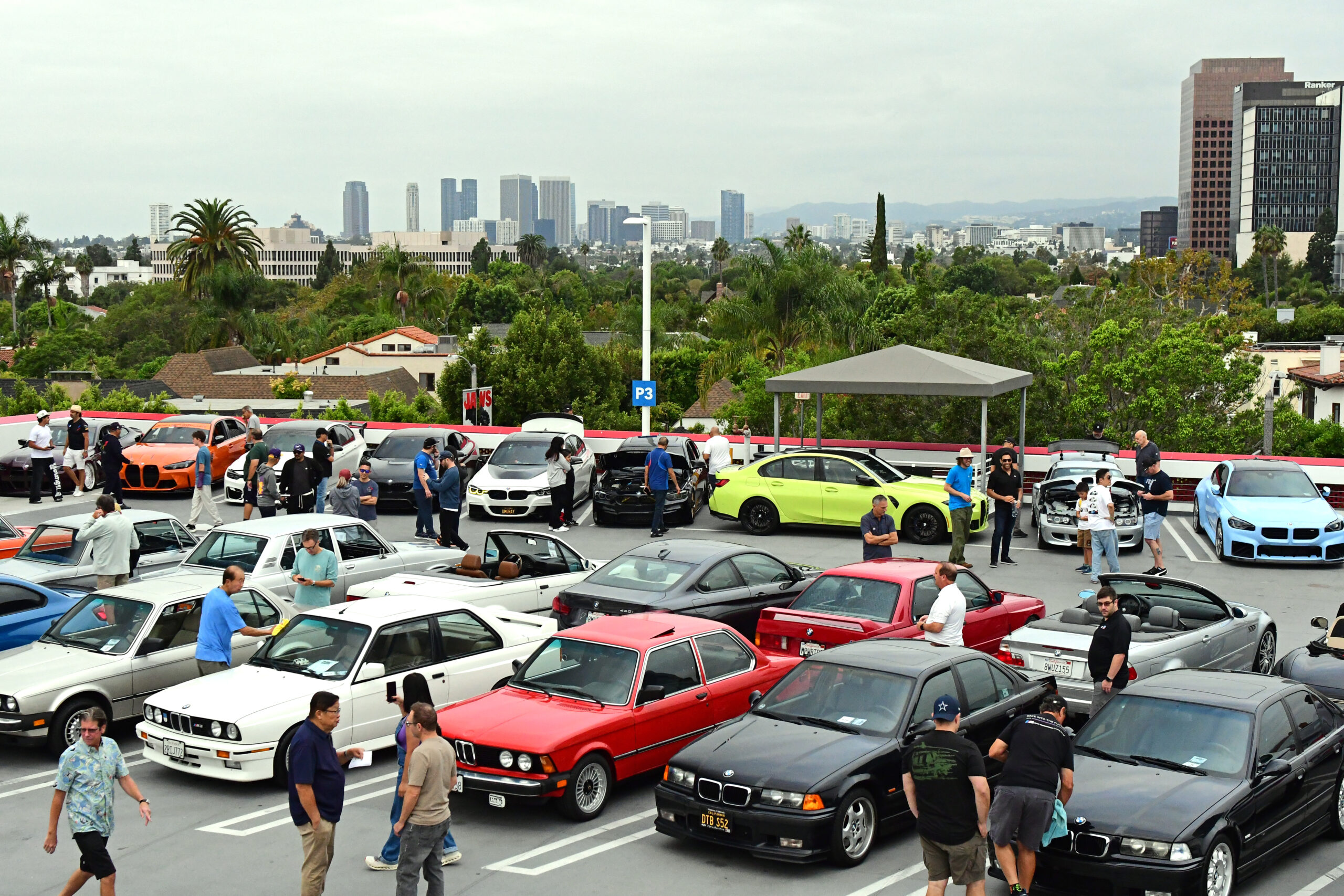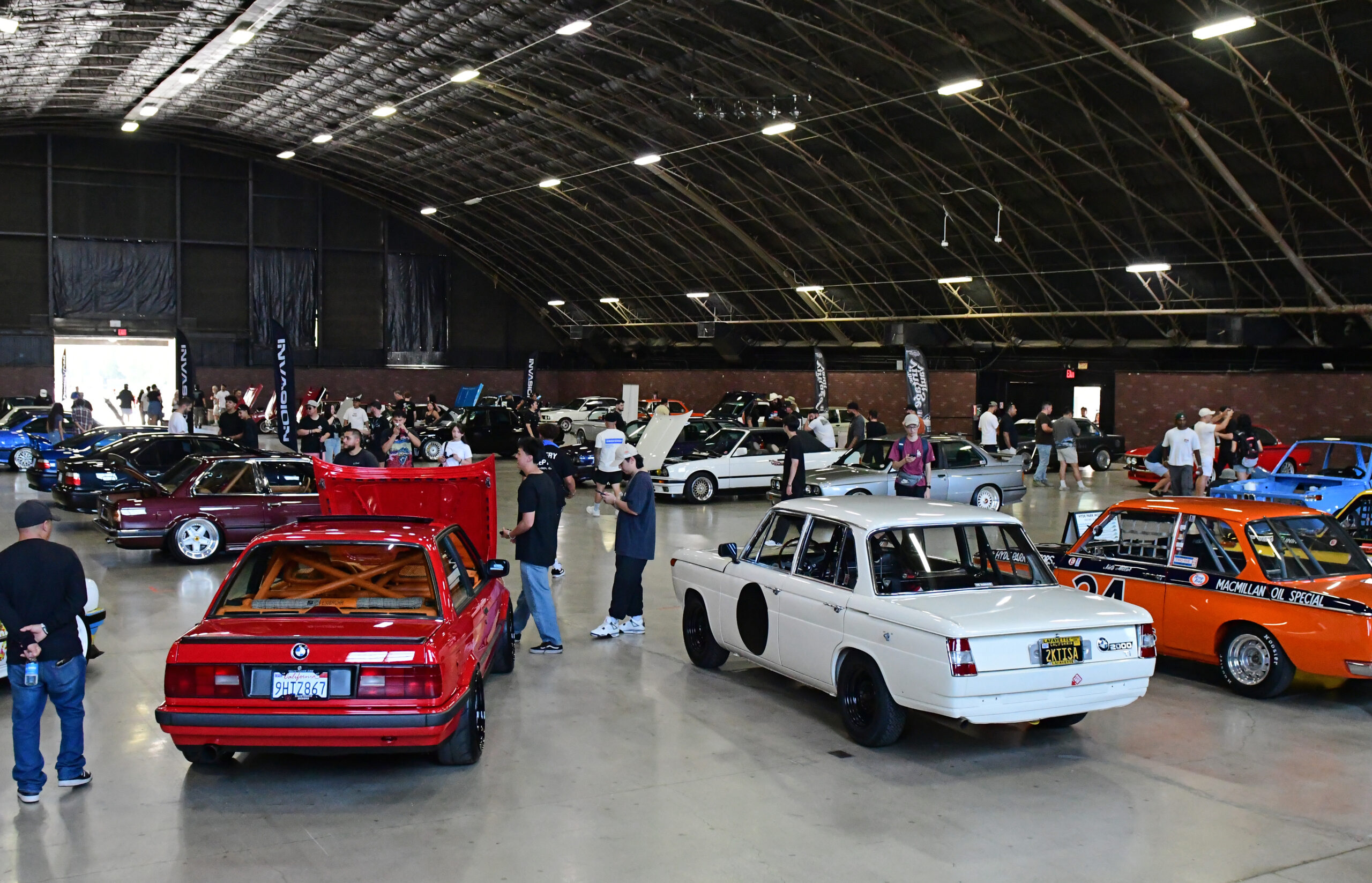Series production of the BMW iX electric vehicle began this week at BMW Group Plant Dingolfing in Lower Bavaria. The beginning of production marks an important milestone for BMW as it seeks to embrace the future of the automobile and mobility as a whole, and comes after the automaker invested billions into its global decentralized production network in preparation to build a new generation of vehicles. The iX is scheduled to go on sale during the second quarter of 2022, and not a moment too soon.
“The launch of the BMW iX marks another milestone in our expansion of electrification and demonstrates our production network’s successful transformation towards electromobility and digitalization,” explained Milan Nedeljković, the BMW board member overseeing production.
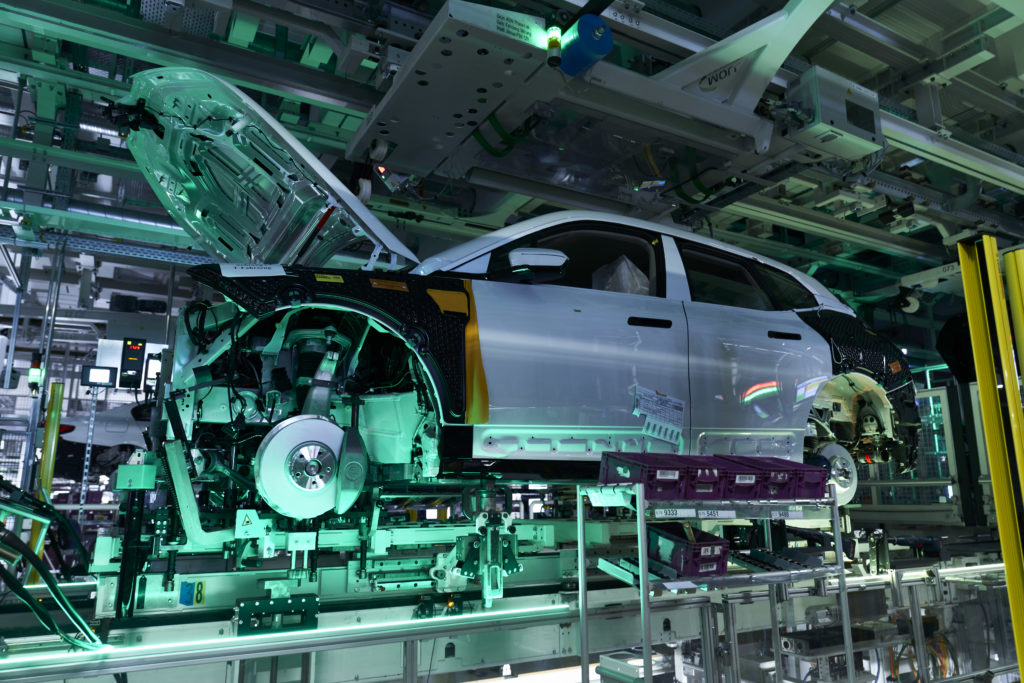
As has been the case with numerous BMW models over the past two decades, the iX is buying manufactured on a shared production line which also builds the BMW 5 Series, 7 Series, and 8 Series. This single assembly line not only produces a wide array of vehicle models, but also manufactures vehicles powered by internal combustion engines, electric motors (eDrive units), and plug-in hybrids (PHEVs). The remodeling and restructuring of the plant was carried out in the years leading up to the launch of the iX, and is said to benefit future generations of the 5 Series and 7 Series, of which fully electric versions will soon be offered.
BMW is gearing up for half of its production capacity to be allocated to electric vehicles by the middle of the decade. This means that, by the end of 2022, each of BMW’s German production plants will be manufacturing at least one fully electric vehicle. The iX will soon be followed by the i4, and to handle the expected demand, Dingolfing is ramping up to produce eDrive components for as many as 500,00 electric vehicles starting in 2022.
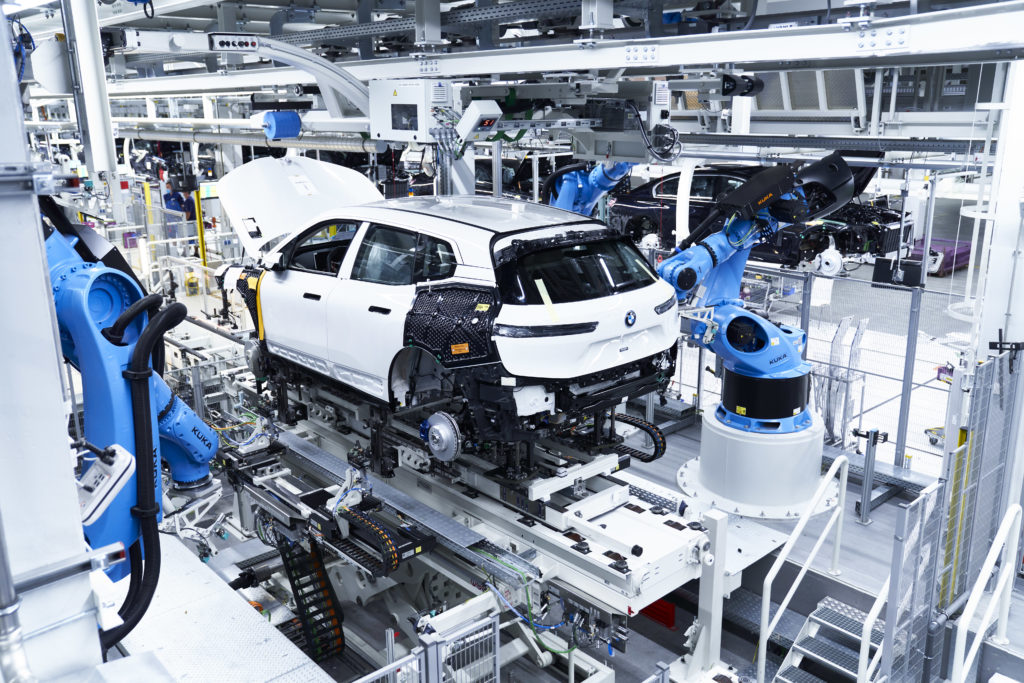
In addition to retooling its factories to build the electric vehicles of the future, BMW is also reinventing its own production processes to be as sustainable as possible. The overarching effort is broad, and takes many forms which vary from sourcing metal producing using solar energy and without carbon dioxide, using sustainable materials to package spare parts, and procuring materials for the solid-state batteries of the future in the least impactful way currently known. It’s also why energy for the production of the BMW iX and i4 comes from local hydropower facilities, and why the iX has an interior which uses FSC-certified wood, not unlike the trailblazing i3.
BMW cites independent auditors who have confirmed that the greenhouse gas potential of the iX xDrive40 to be around 45% less than a comparable SAV powered by an internal combustion engine. BMW Group Plant Dingolfing is said to be able to achieve a recycling rate of more than 90% and a recoverability rate of 99%, and that the facility’s own water wells account for 40% of its necessary input.—Alex Tock
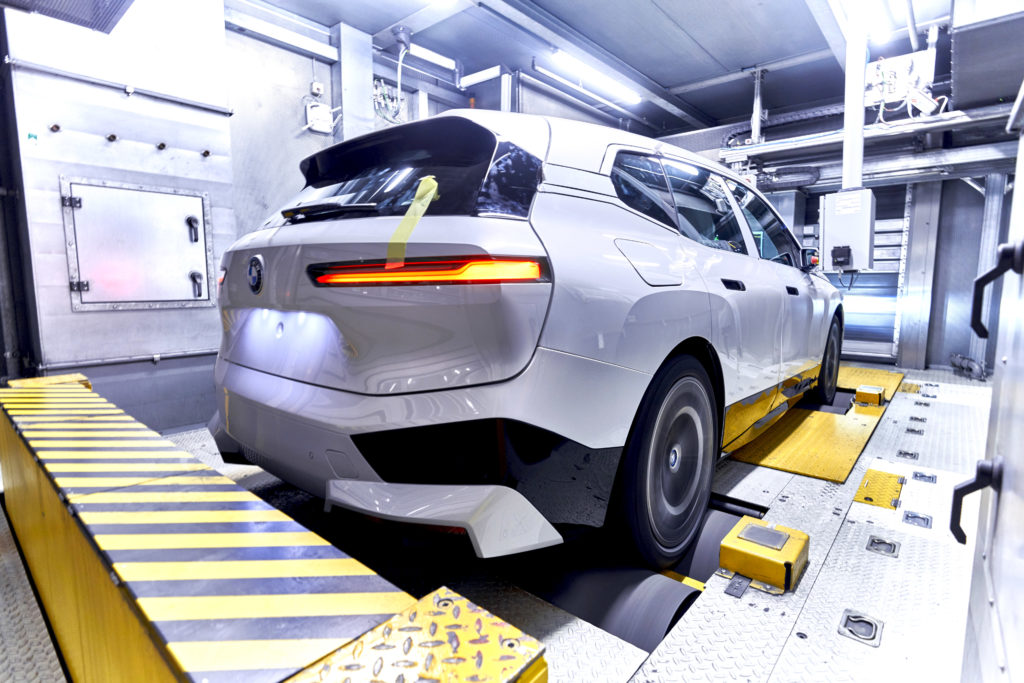
[Photos courtesy BMW AG.]

